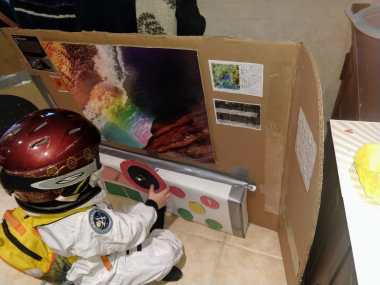
5 Things to Do Under Quarantine
As a result of the quarantine, new studies are starting to come out showing that being online all day can affect your health, make you anxious, give you headaches, affect your vision, and affect your sleep. Long before we were sheltering in place, Melissa Pandika in “The Unexpected Effects of all that Screen Time,” reported on symptoms shown by children, tweens, teens and adults as a result of too much screen time. Although the internet can allow for community building and connection, Pandika, quoting Delaney Ruston, a physician and documentary filmmaker who produced Screenagers, warns that social development can be … Continue reading 5 Things to Do Under Quarantine




